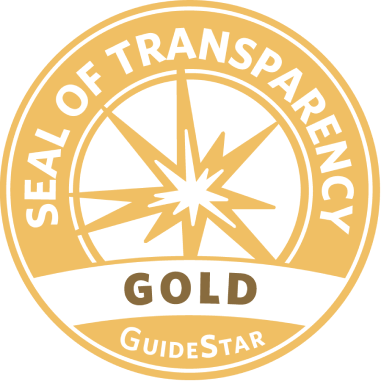In today’s interconnected world, English is more than just a language; it is a bridge to opportunity, empowerment, and global participation. Proficiency in English enables individuals to access higher education, secure better employment, and advocate for their rights on a global stage. However, for many individuals in underprivileged communities and conflict zones, access to English language education remains a distant dream.
Non-governmental organizations (NGOs) play a critical role in addressing this gap. By providing resources, training, and support, NGOs like Omid Foundation empower individuals, particularly women and youth, to learn English and transform their lives. This article explores how NGOs promote English language learning, the challenges they face, and the profound impact of their efforts on marginalized communities.
Why English Language Learning Matters
English is often referred to as the global language. It is the dominant medium of communication in international business, diplomacy, and academia. Proficiency in English equips individuals with the skills to:
Access global education opportunities: Many prestigious universities and scholarships require English proficiency, such as IELTS or TOEFL scores.
Enter the global workforce: Multinational companies often list English as a prerequisite for employment.
Engage with global platforms: English is the primary language of the internet, with the majority of online content and resources available in English.
Advocate for change: Speaking English allows individuals to share their stories, connect with international networks, and amplify their voices on global issues.
For communities in conflict zones or marginalized regions, learning English can be a lifeline to a brighter future.
The Role of NGOs in Promoting English Learning
- Providing Access to Resources
In many underprivileged communities, access to English language learning resources is limited. Schools often lack qualified teachers, textbooks, and technological tools. NGOs step in to fill this gap by:
Distributing learning materials: NGOs provide books, workbooks, and digital tools tailored to local contexts.
Creating mobile apps and offline resources: Recognizing the digital divide, many organizations develop low-data apps or offline modules for learners without internet access.
Establishing community learning centers: NGOs set up centers equipped with computers, internet access, and study spaces, offering learners a safe and resourceful environment.
- Training and Supporting Educators
A critical component of English language learning is having skilled and motivated teachers. NGOs play a pivotal role in:
Teacher training programs: NGOs train local educators in innovative teaching methods, empowering them to deliver high-quality English instruction.
Continuous professional development: They provide ongoing support, workshops, and certifications to ensure educators stay updated with best practices.
Peer-to-peer learning networks: Facilitating connections among teachers allows them to share ideas and resources, strengthening the overall learning ecosystem.
- Designing Inclusive Programs
Marginalized groups, such as women, refugees, and individuals with disabilities, often face additional barriers to education. NGOs work to create inclusive programs by:
Offering scholarships and financial aid: These initiatives enable learners who cannot afford tuition fees to participate in English courses.
Catering to diverse learning needs: NGOs design flexible programs, such as evening classes or online options, to accommodate those with family or work commitments.
Providing safe learning spaces: Particularly for women and girls, safe and culturally sensitive environments are crucial for effective learning.
- Leveraging Technology
Technology has revolutionized education, and NGOs are harnessing its potential to make English language learning more accessible:
E-learning platforms: Interactive platforms with videos, quizzes, and virtual classrooms allow learners to study at their own pace.
Language learning apps: NGOs partner with app developers to provide free or subsidized access to popular tools like Duolingo or Babbel.
Telecommunication solutions: In areas with limited internet, NGOs use radio or SMS-based lessons to reach learners.
- Advocating for Systemic Change
Beyond direct education initiatives, NGOs advocate for policies that promote English language learning:
Lobbying governments: NGOs push for reforms that prioritize language education in national curricula.
Collaborating with stakeholders: By partnering with local schools, international organizations, and private donors, NGOs amplify their impact.
Raising awareness: Campaigns highlighting the importance of English learning inspire communities to prioritize education and overcome cultural barriers.
Challenges Faced by NGOs
While their contributions are invaluable, NGOs often encounter significant challenges in promoting English language learning:
- Funding Constraints
Many NGOs rely on donations and grants, which can be unpredictable. Limited funds restrict their ability to scale programs, hire qualified staff, or invest in advanced technologies.
- Cultural and Societal Barriers
In conservative communities, particularly in conflict zones, societal norms may discourage or even prohibit women from pursuing education. Overcoming these barriers requires culturally sensitive approaches and persistent advocacy.
- Political Instability
Conflict zones and politically unstable regions pose logistical challenges, from securing safe locations for learning centers to ensuring the safety of staff and learners.
- Technological Limitations
While technology can bridge gaps, it is not a panacea. In regions with unreliable electricity or internet access, implementing digital solutions becomes challenging.
Success Stories: Transforming Lives Through Language
Despite the challenges, the impact of NGOs’ efforts is undeniable. At Omid Foundation, we have witnessed remarkable transformations among our learners:
Zahra’s Story: A young woman from a rural Afghan village, Zahra joined an English course offered by Omid Foundation. With access to digital resources and mentorship, she mastered the language and secured a scholarship to study international relations abroad. Today, she advocates for women’s education globally.
Ali’s Journey: Ali, a refugee in Iran, struggled to find employment due to language barriers. After completing an English program supported by Omid Foundation, he now works as a translator for an international NGO, helping other refugees navigate their new lives.
These stories are a testament to the power of education and the role of NGOs in creating opportunities for marginalized individuals.
A Call to Action
The work of NGOs in promoting English language learning is essential, but they cannot do it alone. Here’s how you can contribute:
- Donate: Your contributions help fund programs, resources, and scholarships for learners in need.
- Volunteer: Share your skills as an English teacher or mentor through NGO programs.
- Advocate: Raise awareness about the importance of English education and support policies that prioritize learning in underprivileged communities.
- Partner: Businesses and institutions can collaborate with NGOs to provide resources, technology, and financial support.
Conclusion
English language learning has the power to transform lives, especially for those in marginalized and conflict-affected communities. By bridging the gap between opportunity and access, NGOs play a vital role in empowering individuals to achieve their dreams and contribute to their societies.
At Omid Foundation, we are proud to be part of this transformative journey. Together, with the support of donors, educators, and advocates, we can ensure that everyone has the chance to learn, grow, and thrive.
Education is not just a privilege—it is a right. Let us work together to make English language learning accessible to all, unlocking the potential of individuals and fostering a more inclusive and equitable world.

